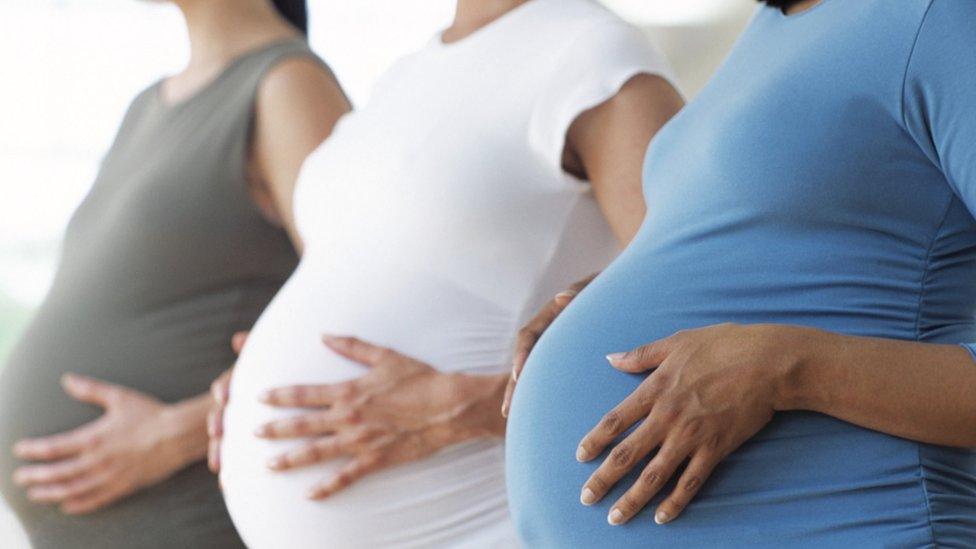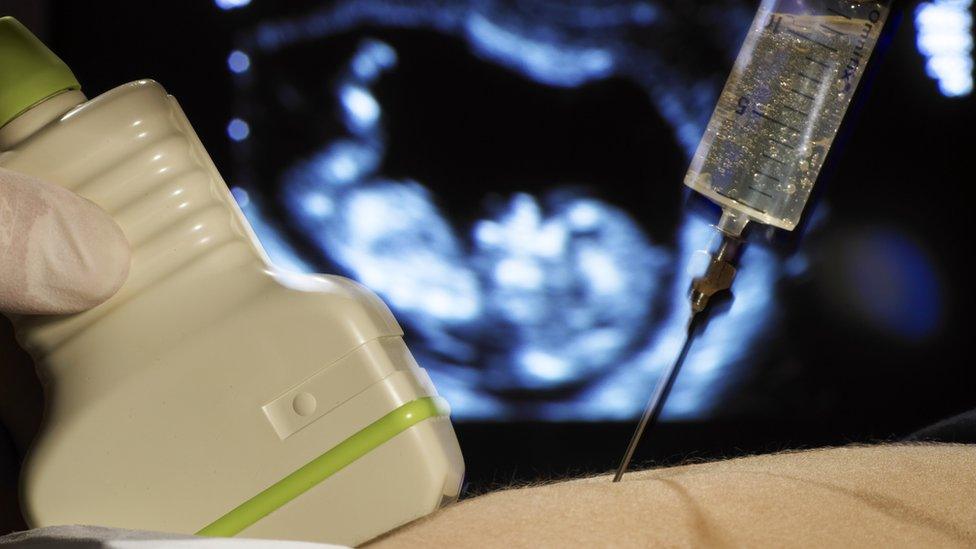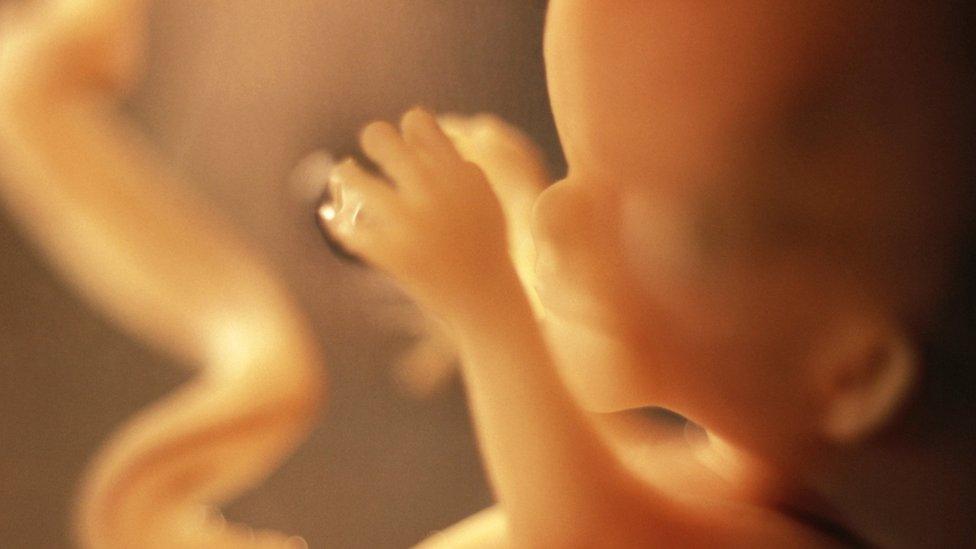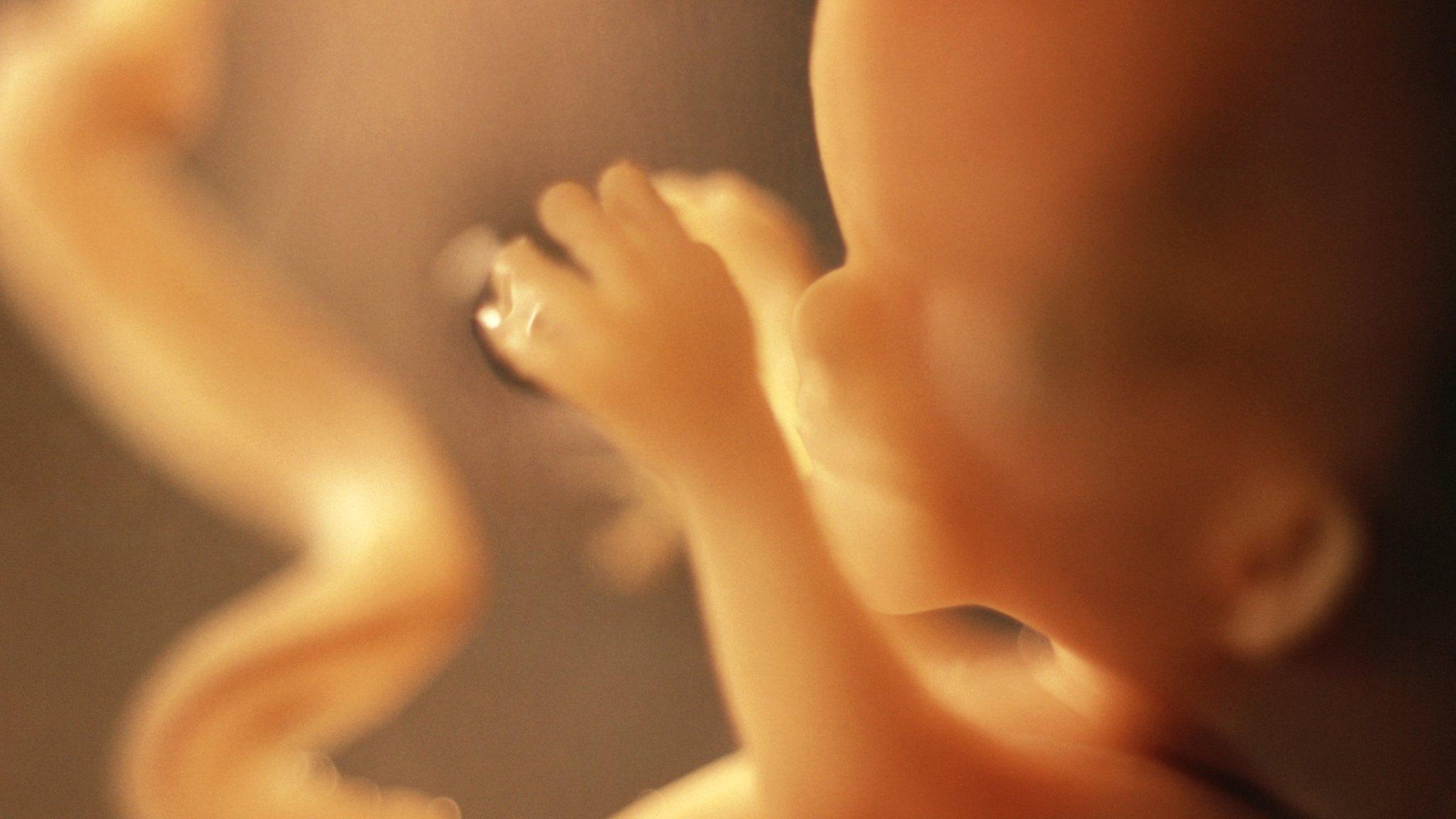Safer Down's test backed for NHS use
- Published

Pregnant women in the UK should soon get a safer and more accurate test for Down's syndrome on the NHS, to reduce the risk of miscarriage.
The UK National Screening Committee has backed the test, saying it would reduce anxiety for expectant mothers.
The move would prevent thousands of invasive procedures, in which one in every 200 women loses her baby.
The test analyses tiny fragments of the baby's DNA that end up in the mother's blood, to look for abnormalities.
Down's syndrome is a genetic condition that typically causes some level of learning disability and characteristic physical features.
The NHS offers screening to women 11 to 14 weeks into their pregnancy.
At the moment, an ultrasound scan, the mother's age and other factors such as smoking are combined to assess the likelihood of a baby having Down's.
Anyone with a greater than one-in-150 chance of having a baby with Down's is offered an amniocentesis, in which a needle is used to extract a sample of amniotic fluid surrounding the foetus.

But it is a risky procedure, which will give a negative result in the overwhelming majority of cases.
The new non-invasive prenatal blood test (NIPT) will be offered to women instead.
Down's syndrome is caused by an extra copy of chromosome 21, and it is this extra DNA from the baby that the test spots in the mother's blood.
If the test is positive, doctors will still recommend an amniocentesis, but the invasive procedure will become unnecessary for the majority of women.
The UK National Screening Committee, which advised health authorities in England, Wales, Scotland and Northern Ireland, has recommended non-invasive pre-natal testing is introduced.
Dr Anne Mackie, the director of programmes at the UK National Screening Committee, told the BBC News website: "I think it has the potential to make a great deal of difference.
"It will give more accurate results and reduce anxiety in a significant number of people."
The new screening plan will be rolled out gradually as it is still uncertain how popular the test will be among women and how effective it will be for other conditions such as Edwards' and Patau's syndromes.
But estimates suggest between 3,000 and 5,000 amniocenteses each year will no longer be necessary.

Great Ormond Street Hospital conducted trials to assess how non-invasive prenatal testing could be used on the NHS.
It indicated many women who would have refused the amniocentesis chose to have the safer test.
Prof Lyn Chitty, who led those trials, told the BBC: "I'm very pleased that they've made the decision to introduce it into NHS maternity care for all women, we know many are going to the private sector for it at the moment.
"For those getting reassurance, it's great and they can enjoy the rest of their pregnancy.
"For those with a positive diagnosis, we have to put measures in place to support them."
She said the testing "might" lead to an increase in abortions but her study showed "many are using it to prepare for the birth of a baby with Down's syndrome".
The National Screening Committee says it is aware there may be an impact on abortion, but the voluntary test was there to give women information and it was up to them what happened next.
Royal College of Obstetricians and Gynaecologists has called for the correct training of NHS staff in the "communication and counselling expectant parents" in the implications of the results.
About 775 babies are born with the condition each year in England and Wales, according to the NHS
Prof Baskaran Thilaganathan, from St George's Hospital in London, which is already offering the test, said the non-invasive option would make a "massive difference to patients".
He said: "Women can now have this DNA blood test, which is £200 cheaper than an amniocentesis and has no risk of miscarriage
"It's fairly self-evident that the cheap and safer test is the way forward."
Follow James on Twitter, external.
- Published1 April 2015

- Published6 June 2015
